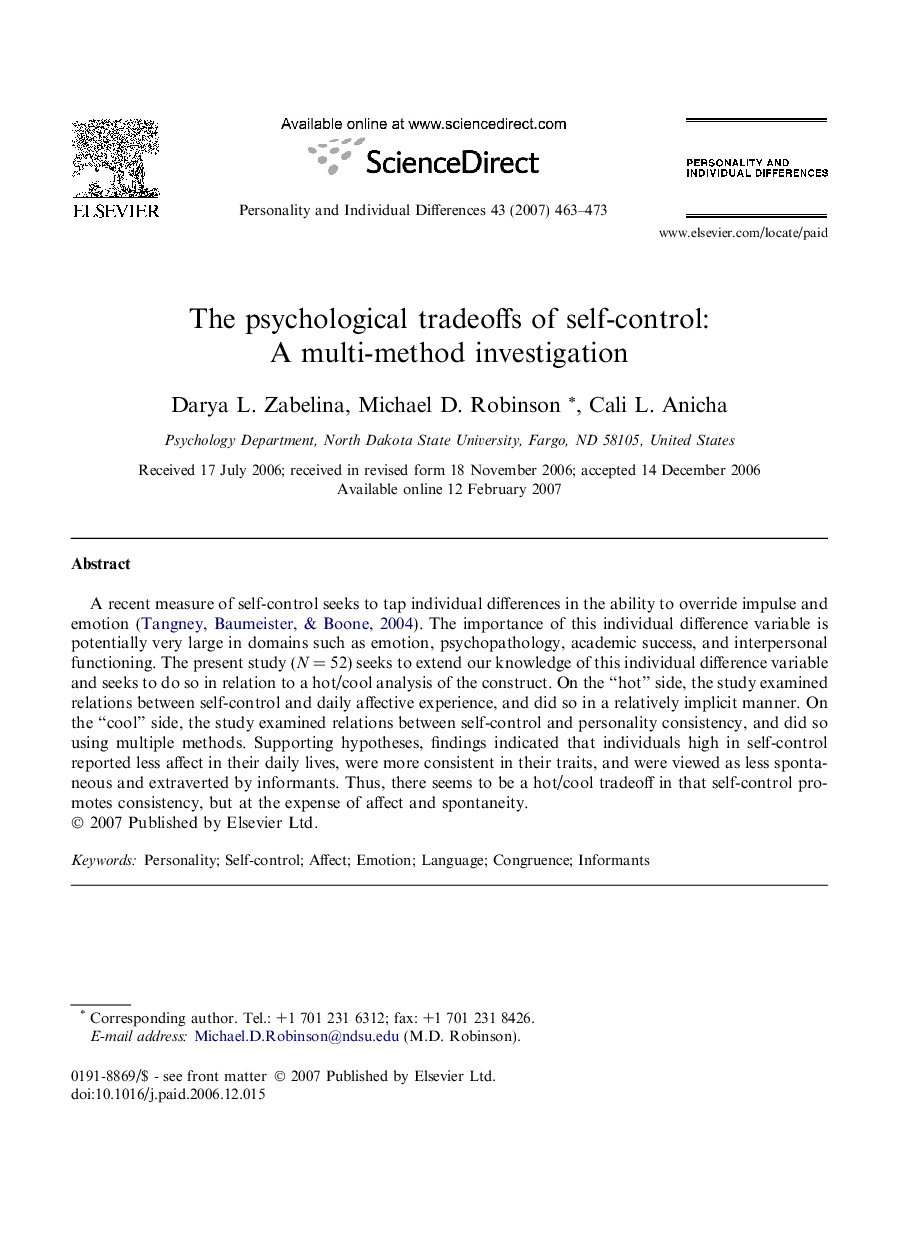| Article ID | Journal | Published Year | Pages | File Type |
|---|---|---|---|---|
| 892610 | Personality and Individual Differences | 2007 | 11 Pages |
A recent measure of self-control seeks to tap individual differences in the ability to override impulse and emotion (Tangney, Baumeister, & Boone, 2004). The importance of this individual difference variable is potentially very large in domains such as emotion, psychopathology, academic success, and interpersonal functioning. The present study (N = 52) seeks to extend our knowledge of this individual difference variable and seeks to do so in relation to a hot/cool analysis of the construct. On the “hot” side, the study examined relations between self-control and daily affective experience, and did so in a relatively implicit manner. On the “cool” side, the study examined relations between self-control and personality consistency, and did so using multiple methods. Supporting hypotheses, findings indicated that individuals high in self-control reported less affect in their daily lives, were more consistent in their traits, and were viewed as less spontaneous and extraverted by informants. Thus, there seems to be a hot/cool tradeoff in that self-control promotes consistency, but at the expense of affect and spontaneity.
